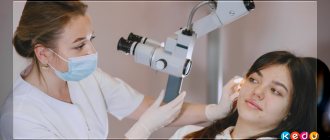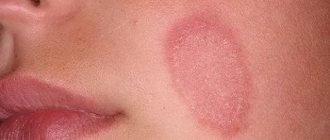Assessing and preserving the health of newborn babies is an important and very responsible task, because it is in the first days and weeks that serious illnesses of the child are often detected, which in the future can negatively affect its development. Therefore, in maternity hospitals and perinatal centers, every breath and movement of newly born babies is closely monitored by neonatologists - specialists involved in the treatment and prevention of diseases of babies during the first month of their life.
Neonatologist: what kind of doctor is this?
The neonatal period is calculated from the first minutes after the birth of a child and lasts until the 28th day of his life, and it is on these days, according to statistics, that the maximum number of child deaths occurs. These four weeks are a very important time for every baby, since with timely examination and treatment, the development of many chronic diseases can be prevented and possible causes of further disability can be eliminated.
Careful care and attention of medical personnel are especially necessary for infants with respiratory disorders, low weight, intrauterine growth retardation, congenital defects, intracranial birth injuries, asphyxia, intrauterine hypoxia, infectious diseases, hemolytic disease, and those born prematurely. In such babies, problems discovered in the first month of life can in most cases be eliminated, but those that go unnoticed can be missed forever.
Neonatologists have to be multidisciplinary specialists - pediatricians, pulmonologists, gastroenterologists, cardiologists and neurologists, because they need to comprehensively understand what is happening in the baby’s body. And also, in order to assess the life prospects of a newborn, they should know various aspects of obstetrics, because the future life and health of the baby largely depends on how the pregnancy went and how the birth proceeded. And it was for these reasons that neonatology was separated from pediatrics into a separate section of medicine - so newborns got their own special doctor.
Neonatologist salary
A doctor’s salary consists of the following indicators:
- bonuses;
- working shifts at night, weekends and holidays;
- allowances.
Salary also depends on the region. The average salary of a specialist is approximately 30 thousand rubles. According to employee search services, a neonatologist can expect the following salary:
- Minimum - from 15 thousand 500 rubles.
- Maximum - from 130 thousand rubles.
What functions does a neonatologist perform?
In maternity hospitals, neonatologists in most cases work “behind the scenes”, performing the following main functions:
- assess the condition of the child in the first minutes after birth (according to parameters of the Apgar scale - heart rate, respiratory movements, muscle tone, reflexes and skin color)
- weigh and measure the baby
- based on microsymptoms, they determine the need to involve specialists in narrow medical specialties (ophthalmologist, neurologist, cardiologist, otolaryngologist, surgeon)
- assess the indicators of adaptation of a newborn to environmental conditions
Doctors for newborns - neonatologists - look after babies not only in maternity hospitals, but also in children's hospitals (including perinatal centers). Here they are:
- study family pedigree to identify hereditary diseases and predispositions
- assess the course of pregnancy and study the characteristics of childbirth
- draw up an individual plan for diagnosis, treatment and rehabilitation after illnesses
- if necessary, carry out resuscitation measures and provide intensive care to the newborn
A neonatologist also works in many children's clinics. At the reception he:
- teaches mothers the basic rules of caring for a newborn baby
- advises on the formation of lactation and breastfeeding
- prepares individual vaccination schedules
- gives recommendations on the child’s daily routine and nutrition
As a rule, observation by a neonatologist continues during the first month of the baby’s life, but some doctors continue to care for children with severe impairments of body functions up to six months or even one year. Then care for the grown-up baby passes to a pediatrician.
Neonatology
The birth of a new person is undoubtedly the most important event in the life of every woman. In the first days of life, the health and full development of the baby is influenced by breastfeeding, which is an important period in his communication with his mother. Breast milk from the mother is undoubtedly the most complete nutrition necessary for a child to ensure normal and healthy development, starting from the first days of life.
In order to ensure adequate breastfeeding for your baby, you must adhere to certain rules, including proper nutrition for the mother herself. Complete, and most importantly high-quality nutrition of a breastfeeding woman creates conditions for the release of milk enriched with vitamins and nutrients in the required quantities.
First of all, high-calorie foods with low nutritional value must be excluded from the daily diet of a nursing woman. We are talking about refined foods and various types of sweets, except dried fruits and honey. The daily diet of a woman breastfeeding a newborn should consist of products that can be combined into the following groups:
- Cereal-containing products: black bread made from wholemeal flour with the addition of bran, porridge, category A pasta (hard grades) and rice.
- Vegetable products.
- Fruits and berries.
- Foods enriched with proteins: fish, meat (preferably lean, cooked without the use of oils), poultry and eggs.
- Dairy and fermented milk products.
- Vegetable oils should be used as a dressing for vegetable salads.
In addition, since it is impossible to obtain the required amount of essential minerals and vitamins solely from food, in addition to a woman’s basic nutrition, it is necessary to include in the diet multivitamin complexes designed specifically for nursing women. In any case, when choosing a particular diet and supplements to it, every mother needs to consult a doctor.
After the baby is born, milk does not immediately enter the woman’s breast. For the first five days, mature milk replaces colostrum, which contains much more antibodies, protein and nutrients than mature milk. Therefore, in order for the baby not to starve, it must be applied to the mother’s breast until mature milk appears. This will provide adequate nutrition and help a smooth transition to new physiological conditions.
Also, the time of weaning the baby to the mother’s breast plays a huge role in his further full development. The sooner the newborn is attached to the mother's breast, the faster postpartum stress will go away. The conditions in which it is carried out are of great importance for proper feeding. Mother and child should not experience discomfort from the conditions of their stay in a medical facility, while staying together for as long as possible.
Breastfeeding should be carried out at every request of the child and at any suitable moment, both during the day and at night. At the same time, it is also not recommended to stop feeding the child by force; the baby must regulate the duration of the feeding process himself. Such actions will, firstly, provide the child with food in the required quantities, and secondly, create comfortable psycho-emotional conditions for him. When breastfeeding, the use of pacifiers, nipples and complementary feeding with foreign liquids is unacceptable. If the baby is thirsty, instead of supplementing the baby, you need to put him to the breast more often.
When breastfeeding, there is undoubtedly a need for proper breast care for a nursing woman. You should not wash your breasts after each feeding; it is enough to do this once a day so as not to wash off the natural protective film that protects the nipples from infection. If feeding is incorrect, namely when the baby is applied to the breast, in which the baby only grasps the nipple, cracks may occur. Therefore, the mother needs to carefully ensure that the baby’s entire areola is covered so that his chin touches the mother’s breast.
Also, it is worth noting that if breastfeeding is carried out correctly, then the moment of expressing breast milk should disappear by itself, because in the female body the production of breast milk is carried out exclusively in the quantities necessary for the child.
Breastfeeding is undoubtedly an important stage in the development of a little person, and most women understand this. The contact that occurs between mother and child during breastfeeding cannot be replaced by other methods of feeding. In addition, none of the formulas can replace breast milk in its composition (substances that protect against infections, the correct ratio of components, substances that promote normal intestinal function, vitamins, etc.).
Therefore, Medical strongly recommends that mothers do not give up breastfeeding their babies, and the specialists of our center will be happy to help you with this.
For what problems should you contact a neonatologist?
A young mother should contact a pediatrician-neonatologist if in the first month of life the baby experiences:
physiological jaundice- physiological erythema (redness of the skin)
- frequent heavy regurgitation
- urinary disorders
- lethargy and weight loss
- difficulty breathing
- inflammation and suppuration of the eyes
- Diaper rash (redness of baby's skin)
- bleeding from the navel
- curdled discharge from the mouth
- frequent loose stools
- intestinal colic
- curdled discharge from the mouth
- manifestations of a viral infection (fever, runny nose, sneezing)
- other symptoms that cause concern for the mother
Do not forget that the sooner you contact a neonatologist to identify and eliminate the problem and prescribe appropriate treatment, the greater the chance your baby will have to develop correctly and be completely healthy in the future.
Complete training
The Interregional Academy of Industrial and Construction Complex (MASPK) invites students to take advanced training courses in the field of Neonatology.
The Academy's resources make it possible to remotely train thousands of specialists from all regions of Russia. Our training programs are compiled with the participation of leading experts in their field and are regularly updated, which allows our graduates to successfully implement themselves in the profession. The Interregional Academy of Additional Professional Education (MADPO) conducts regular enrollment in courses of additional professional education in the specialty “Neonatology”. We offer advanced training programs in a distance format according to an individually agreed schedule, a modern educational and methodological base and standard documents upon completion of training. Training in the Neonatology program at the Medical University of Innovation and Development (MUID) is a modern educational program for medical specialists that allows you to complete training in the shortest possible time and without interruption from work. The University's courses are delivered both part-time and distance learning and fully comply with both educational and professional standards in the field of additional vocational education (additional vocational education). The National Academy of Modern Technologies (NAST) implements additional education programs and invites specialists to undergo professional retraining in the field of Neonatology. The Academy's training programs involve the use of distance technologies, which allows our students to receive education without interruption from their main activities in the most comfortable mode. The career guidance center for medical personnel of higher and middle management MEDICALEDU invites you to study in the specialty “Neonatology”. Timely receipt of additional professional education allows you to timely pass certification events and continuously improve in your profession. The training format for advanced training courses is distance learning. Author of the article
Yurkin Alexey









